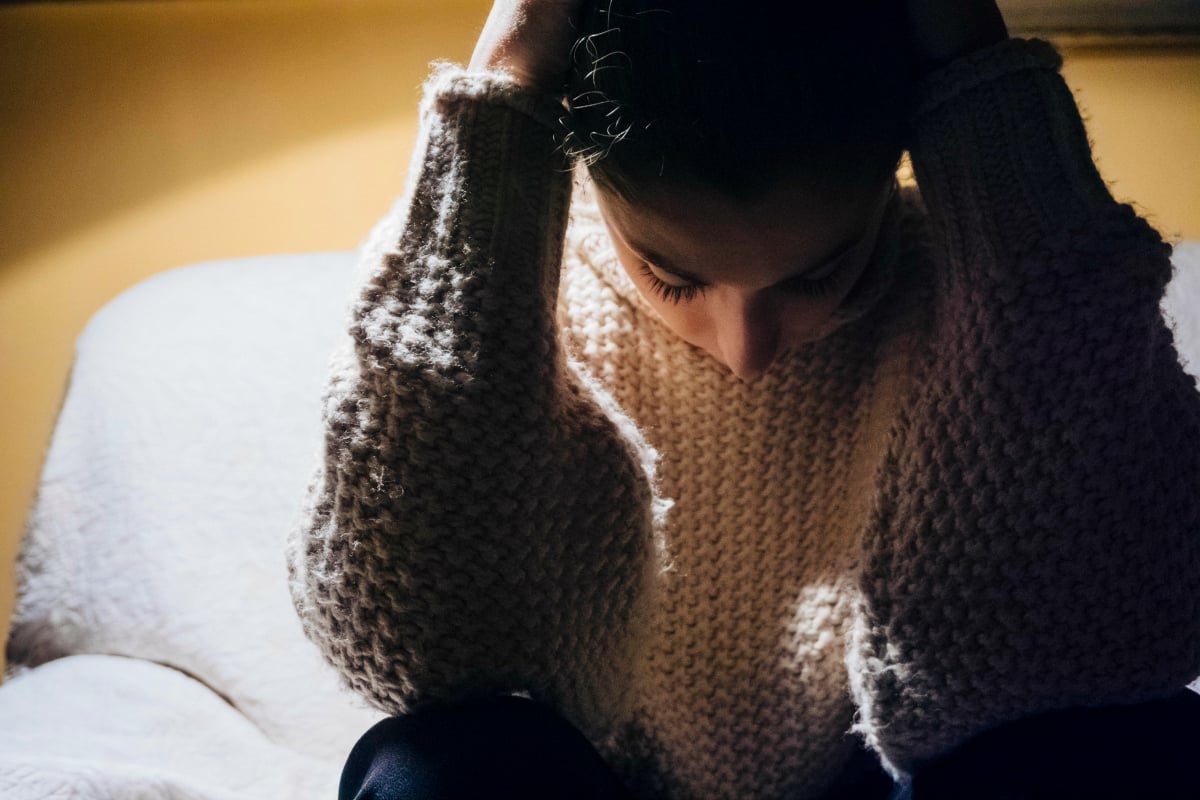
Megan Luscombe works in mental health as a counsellor. But after she went off the Pill in her mid-twenties, she started to think she was losing her mind.
“I was getting really anxious, really withdrawn, really panicked,” she tells Mamamia. “I felt like I was going crazy.”
Luscombe felt she needed to be on her own, away from everybody, including her partner.
“I couldn’t be around her. I just had to go in another room.”
She found herself thinking irrational thoughts.
“‘How come somebody hasn’t texted me back in the past four hours? I know they’re on social media – why aren’t they messaging me back? Is my sister angry with me? I haven’t heard from her in four days.’
“It was just dumb stuff. My rational brain, I never think that stuff. I work with people and help them not think about that stuff.”
It was Luscombe’s partner who pushed her into doing something about it.
“My partner said to me, ‘I want you to mark an X on the calendar and tell me when you actually start feeling better.’ I put an X on the calendar and I kept putting Xs on. I went, ‘There’s something seriously up.’”
Luscombe could see that it was connected to her menstrual cycle, as the depression and anxiety were kicking in 12 days before every period. She went to her doctor, who did blood tests to check her hormone levels before diagnosing her with premenstrual dysphoric disorder (PMDD).


